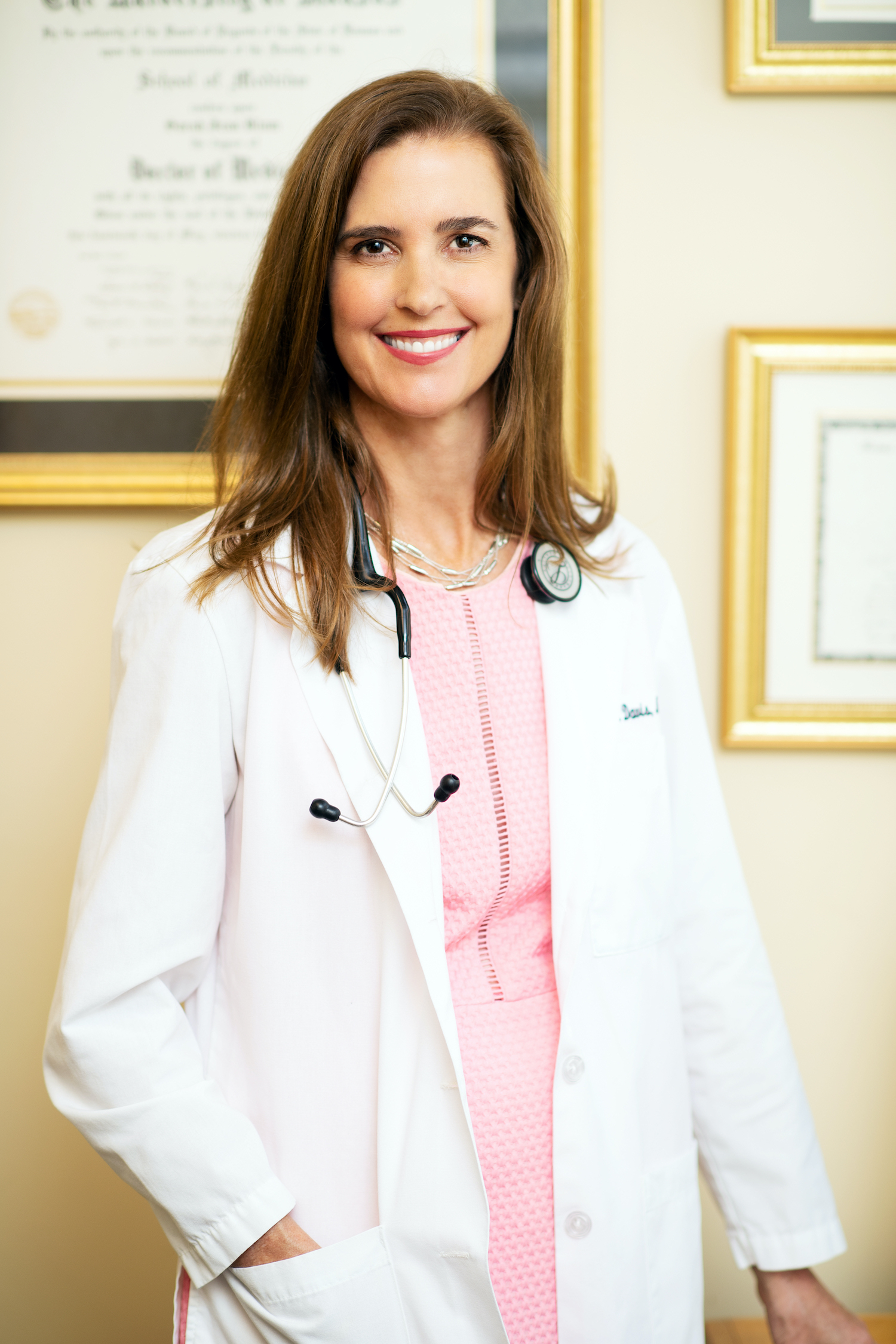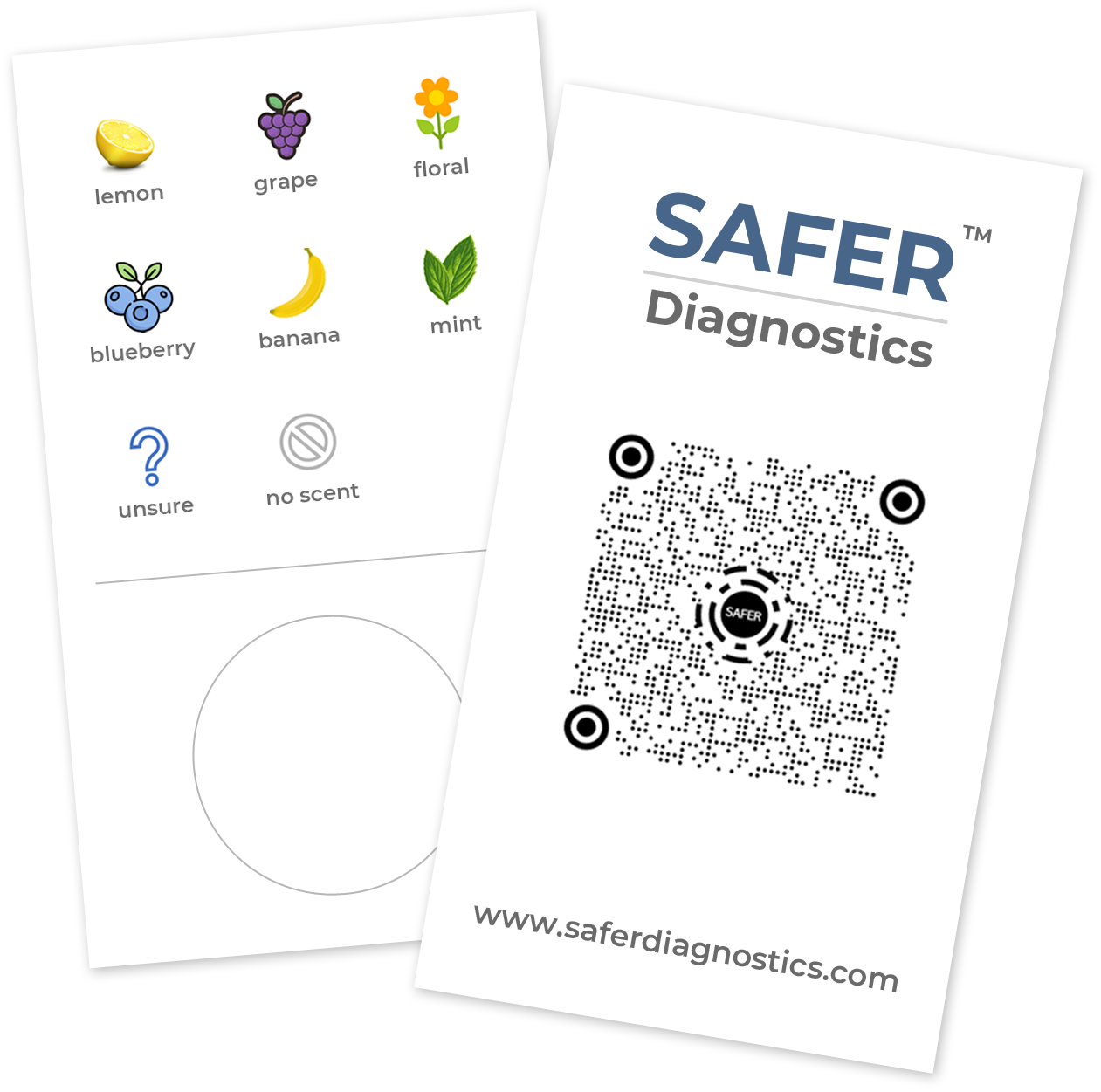Without a COVID-19 vaccine, the virus will remain present in society for months, maybe years. But with lower levels of cases in many urban areas, businesses are working to figure out ways to reopen safely. Temperature checks help, but up to 30 percent of people never get a fever even though they can spread the virus. Testing has become more rapid and reliable, but is expensive.

Dallas-based SAFER Diagnostics has developed a unique way for organizations to screen employees and residents, providing non-invasive, fast, and inexpensive screening that is more comprehensive than temperature checks at the door. SAFER has developed a test for anosmia or hyposmia, the loss, or reduced ability to smell, one of the most common and reliable symptoms of COVID-19.
Loss of smell is one of the earliest symptoms of COVID-19, and Harvard Medical School research says, “Temporary loss of smell, or anosmia, is the main neurological symptom and one of the earliest and most commonly reported indicators of COVID-19. Studies suggest it better predicts the disease than other well-known symptoms such as fever and cough…” While fever may dissipate quickly, loss of smell can linger for weeks, giving an organization more data about how the disease is impacting a group of people.
Other research analyzed electronic health records and found that COVID-19 patients are 27 times more likely to have a loss of smell than the average patient. Fever, cough, or respiratory difficulty were only 2.2 to 2.6 times more likely in COVID patients than the average patient. Those symptoms can be from several illnesses, while the loss of smell is much rarer.
Studies suggest anosmia better predicts the disease than other well-known symptoms such as fever and cough. Analyses of electronic health records indicate that COVID-19 patients are 27 times more likely to have a loss of smell, but are only around 2.2 to 2.6 times more likely to have a fever, cough, or respiratory difficulty than patients without COVID-19.
Because it is an earlier and better predictor of COVID-19, the test can be used to tell an organization to determine if COVID-19 may be spreading, and further testing is needed. SAFER founder and internal medicine physician Dr. Sarah Davis’ was motivated to find a better solution when her daughter contracted COVID-19 while working at a summer camp. Davis also runs her practice and wanted to find a more secure way to screen her patients. “People with COVID lose their sense of smell, which is just very unique. We don’t see that in other infectious diseases,” she says. “I wanted something that would be clean, neat, disposable, and was something that I knew that people without COVID could easily smell.”
To develop the test, Davis worked through several smells and settled on several easily recognizable smells for those with a full sense of smell. The test consists of a scented card with a QR code so that the results can be tracked. A failed test means the individual should get a test, and several failures could tell an organization that they may have an outbreak. An employer, university, or hotel could administer the test to staff or students. The QR codes connected to the individuals could provide information about how the virus may be spreading through a dorm or wing. And the QR code could also serve as a way for someone to tell an organization that they have recently passed a smell test.
The card can be scanned with any smartphone, a directions will guide the user how to take the test. It can be done in just 20 seconds. A passing test gives the person a mobile pass to let others know they have passed. In her testing, Davis says that two-thirds of COVID-positive patients were unable to identify the smell, and ninety percent of those without COVID-19 were able to identify the scent.
The company is still in its early days but is in talks with businesses, hotels, and universities to implement its solution. “I think it holds a ton of potential because this is cheap for them to use for their employees,” Davis says. “Especially for their employees coming into places where it’s difficult to social distance.”
Many positive tests could give an organization instant information that the virus may be spreading. “You’ll be able to contain something before it spreads, and you had to shut down and quarantine a huge group of people,” she says.





